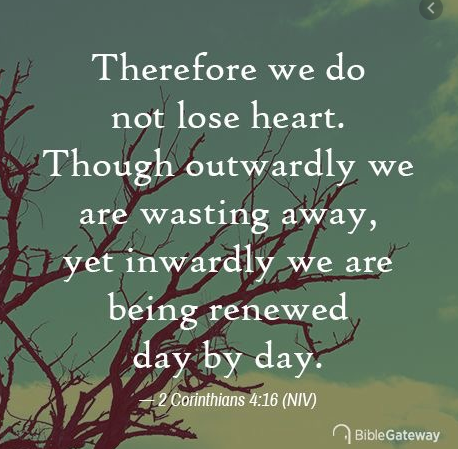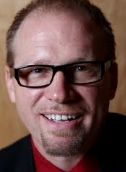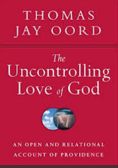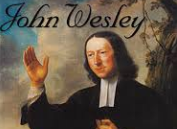Dear WesleyNexus Colleagues:
What a difference a month makes. Last month we focused on the Evolution Weekend program in Fulton, Maryland emphasizing the on-going progress and challenges with women in science, academia and the church. Now we are consumed by Covid 19, a crisis unlike any experienced within our lifetimes. While our prior concerns have not disappeared, they have been swamped by a tidal wave of fear and anxiety that the best scientific evidence to date says is justified. Yet, as Paul says in writing 2 Corinthians 4:16, though our anxiety is real, so is our hope. Paul, whose ministry was being challenged by the tumultuous challenges of his time, wrote “So we do not lose heart. Even though our outer nature is wasting away, our inner nature is being renewed day by day. For this slight momentary affliction is preparing us for an eternal weight of glory beyond measure, because we look not at what can be seen but what cannot be seen; for what can be seen is temporary, but what cannot be seen is eternal.”

With this confidence, Paul proceeded to establish and support faith communities right up until his death. But that was 2000 years ago, the imminent new creation is long delayed and some look at Paul’s confidence as misguided and inapplicable to our times. If we focus on what Paul believed that turned out to be mistaken, we miss the more important message of hope, community and spiritual transformation that is possible in a time of fear and disorientation. We need to hold on tight to this faith while, at the same time, heeding the advice of our scientists and medical practitioners. It is in this environment that the science and religion dialog has an important role. The tasks required of the time seem daunting. As the Psalmist laments, “how can we sing the Lord’s song is such a foreign land”? I don’t think anyone can answer this question without humility and doubt. But I hope that there are some words in this newsletter that can buttress you against the epidemic wave washing over us all.
And remember, as Yogi Berra said, “It’s tough to make predictions, especially about the future”.
Lastly, thanks to our generous contributors, we enabled the live-stream Evolution Weekend event in Fulton, Maryland. We are not asking for any contributions at this time and pray that you will keep your family’s safe and be willing to give to those who are in the most need. We will continue to share this newsletter in the coming months and encourage you to share articles and insights that will help us all weather these difficult times.
Until next month, may you be well, have courage and cultivate hope for better times.
Rick, Jennifer, Maynard, and the rest of the WesleyNexus team.
***********************************************************
God’s Will and the Coronavirus by Tom Oord

Tom Oord was scheduled to give a lecture on April 21, 2020 at Covenant United Methodist Church in Gaithersburg, MD which has been canceled, as has his presentation the following evening at National United Methodist Church in Washington, DC. However, in this recent blog, Tom discusses many of the themes that would have been presented in this talk. He concludes his message with the following invitation:
“We are always called to love. Our present crisis presents new challenges in discovering what love now requires. I commit to doing my best to discern and then respond to God’s calls of love. I hope you join me. God does too”.
God’s Will and the Coronavirus
***********************************************************
Models of God’s Action by Tom Oord

In the 2015 book, The Uncontrolling Love of God, Tom Oord explores seven models of God and how each provides a way of seeing how God relates to the world and affects how we understand our theology and how we practice our Christian faith. In his March post, Oord summarizes these options and argues for God as essentially kenotic / uncontrolling love.
Because of love, God necessarily provides freedom/agency to creatures in each moment. God works by empowering and inspiring creatures of all levels of complexity toward well-being. And God necessarily upholds the regularities of the universe, because those regularities derive from God’s eternal nature of love. God is not a dictator, mysteriously behind the scenes pulling strings.”
Although this model says God never totally controls others, it claims God sometimes acts miraculously in noncoercive ways. Miracles occur when God and creatures work in tandem. God providentially guides and calls all creation toward love and beauty.
God’s nature of love logically precedes God’s sovereign will. Kenosis derives from God’s eternal and unchanging nature of love and not from voluntary divine decisions. And because God’s nature is love, God always gives freedom, agency, and self-organization to creatures and sustains the regularities of nature.
After the book’s publication, a companion project collected numerous responses from readers published in the book Uncontrolling Love. Many of these can be found on the website https://uncontrollinglove.com/
***********************************************************
Pandemic by Lynn Ungar
What if you thought of it
as the Jews consider the Sabbath—
the most sacred of times?
Cease from travel.
Cease from buying and selling.
Give up, just for now,
on trying to make the world
different than it is.
Sing. Pray. Touch only those
to whom you commit your life.
Center down.
And when your body has become still,
reach out with your heart.
Know that we are connected
in ways that are terrifying and beautiful.
(You could hardly deny it now.)
Know that our lives
are in one another’s hands.
(Surely, that has come clear.)
Do not reach out your hands.
Reach out your heart.
Reach out your words.
Reach out all the tendrils
of compassion that move, invisibly,
where we cannot touch.
Promise this world your love–
for better or for worse,
in sickness and in health,
so long as we all shall live.
–Lynn Ungar 3/11/20
***********************************************************
Signs of Decline & Hope Among Key Metrics of Faith in Barna: State of the Church

To get a broad view of the role of Christianity in the American Church, as well as those outside of it, let’s start by looking at the manner in which Americans relate to Christianity, using three segments: practicing Christians, non-practicing Christians and those who are not Christians.
- Practicing Christians identify as Christian, agree strongly that faith is very important in their lives and have attended church within the past month.
- Non-practicing Christians are self-identified Christians who do not qualify as practicing.
- Non-Christians are U.S. adults who do not identify as Christian.
The first and perhaps most significant change we’ll explore is that practicing Christians are now a much smaller segment of the entire population. In 2000, 45 percent of all those sampled qualified as practicing Christians. That share has consistently declined over the last 19 years. Now, just one in four Americans (25%) is a practicing Christian. In essence, the share of practicing Christians has nearly dropped in half since 2000.
Generational change is certainly taking place, but older generations (Boomers and Elders) are drifting away from conventional church attendance at roughly the same pace as younger generations (Gen X and Millennials). Why is that? What can church leaders do to engage the one-quarter of Millennials who remain active in Christian practice? How can the Bible-loyal readers continue to form the bedrock of a resilient Church? In what ways can prayer—the most universal of spiritual activities—be sparked to create spiritual renewal in this society?” https://www.barna.com/research/changing-state-of-the-church/
***********************************************************
What Would Happen If Everyone Truly Believed Everything Is One? By Scott Barry Kaufman

The belief that everything in the universe is part of the same fundamental whole exists throughout many cultures and philosophical, religious, spiritual, and scientific traditions, as captured by the phrase ‘all that is.’ The Nobel physicist Erwin Schrodinger once observed that quantum physics is compatible with the notion that there is indeed a basic oneness of the universe. Therefore, despite it seeming as though the world is full of many divisions, many people throughout the course of human history and even today truly believe that individual things are part of some fundamental entity.
Despite the prevalence of this belief, there has been a lack of a well validated measure in psychology that captures this belief. While certain measures of spirituality do exist, oneness questions are typically combined with other questions that assess other aspects of spirituality, such as meaning, purpose, sacredness, or having a relationship with God. What happens when we secularize the belief in oneness?
***********************************************************
Darwin in America by David Masci

Almost 160 years after Charles Darwin publicized his groundbreaking theory on the development of life, Americans are still arguing about evolution. In spite of the fact that evolutionary theory is accepted by all but a small number of scientists, it continues to be rejected by many Americans. In fact, about one-in-five U.S. adults reject the basic idea that life on Earth has evolved at all. And roughly half of the U.S. adult population accepts evolutionary theory, but only as an instrument of God’s will.
Concerns about how his ideas would be received by the public led British naturalist Charles Darwin, pictured here in 1878, to wait 20 years before publishing his groundbreaking theory of evolution.
Most biologists and other scientists contend that evolutionary theory convincingly explains the development of life on Earth. Moreover, they say, a scientific theory is not a hunch or a guess, but is instead an established explanation for a natural phenomenon, like gravity, that has repeatedly been tested and refined through observation and experimentation.
So if evolution is as established in the scientific community as the theory of gravity, why are people still arguing about it more than a century and a half after Darwin proposed it? The answer lies, in large part, in the theological implications of evolutionary thinking. For many religious people, the Darwinian view of life – a panorama of brutal struggle and constant change – conflicts with both the biblical creation story and the Judeo-Christian concept of an active, loving God who intervenes in human events.
***********************************************************
JOHN WESLEY AND EASTERN ORTHODOXY: Influences, Convergences, and Differences by Randy Maddox

Eastern anthropology differs from the West on nearly every point. First, Eastern theologians have generally assumed that humanity was originally innocent, but not complete. We were created with a dynamic nature destined to progress in communion with God. This conviction lies behind their typical distinction between the “Image of God” and the “Likeness of God.” The “Image of God” denoted the universal human potentiality for life in God. The “Likeness of God” was the realization of that potentiality. Such realization (often called deification) is only possible by participation in divine life and grace. Moreover, it is neither inevitable nor automatic. Thus, the Image of God necessarily includes the aspect of human freedom, though it centers in the larger category of capacity for communion with God.
Like the West, Eastern theologians see the Fall as a result of the human preference to compete with God as God’s equal instead of participating in the divine gifts. However, they understand the results of the Fall differently. First, they reject the idea of human posterity inheriting the guilt of the Fall — we become guilty only when we imitate Adam’s sin. Second, they argue that the primary result of the Fall was the introduction of death and corruption into human life and its subsequent dominion over humanity. Finally, while Orthodoxy clearly believes that the death and disease thus introduced have so weakened the human intellect and will that we can no longer hope to attain the Likeness of God, they do not hold that the Fall deprived us of all grace, or of the responsibility for responding to God’s offer of restored communion in Christ. That is, the distinctive Orthodox affirmation of co-operation in Divine/human interactions remains even after the Fall. In this sense, the East ultimately bases its anthropology more on Creation than on the Fall.
***********************************************************
Process and Reality Course with John Cobb
March 17 – April 21
In this six-session course John Cobb will provide an introduction to one of the most compelling and challenging philosophical texts of the Twentieth Century. Process and Reality is a notoriously difficult text, but the goal of this course is to enable students to not only skim the surface but probe its deeper dimensions. With his decades of experience as a scholar and teacher of Whitehead, Cobb will elucidate the major themes and illuminate the major concepts in a way that is accessible to anyone.
Each week will feature a Lecture + Reading + Discussion + Q/A. Each of the elements are intended to provide all the resources necessary for the engaged nerd like yourself to wrestle deeply with a powerful text – Process and Reality.
The LECTURE each week will be given by world’s foremost living expert on Whitehead’s philosophy, Dr. Cobb. Session by session we will walk through the text, developing Whitehead’s larger philosophical project.
Following the lecture there will be a DISCUSSION of the texts and themes explored in the lecture between John and Tripp.
Throughout the class everyone will be invited to join and engage each other in our private group page. In addition to all the conversation threads the community will bring, Tripp will be hosting live streamed Q/A SESSIONS within the group & have SPECIAL GUESTS join to explore their favorite themes in Whitehead.
Can’t join live? Want to save the content for later? Go ahead and join. All the content of the class will be recorded and shared as both audio and video to the class.
https://ctr4process.org/event/process-and-reality-course-with-john-cobb/
To register:
https://homebrewedchristianity.lpages.co/processreality-signup/
